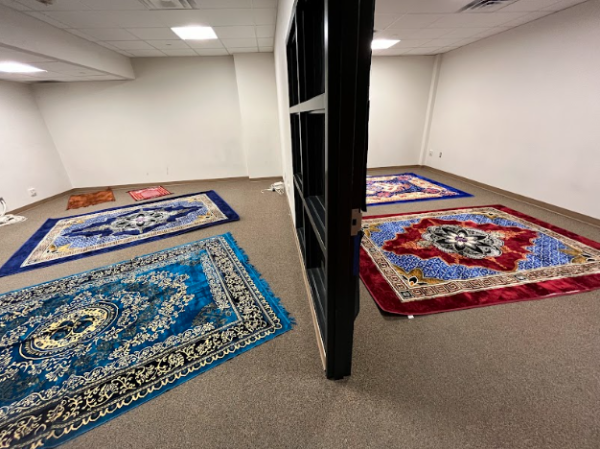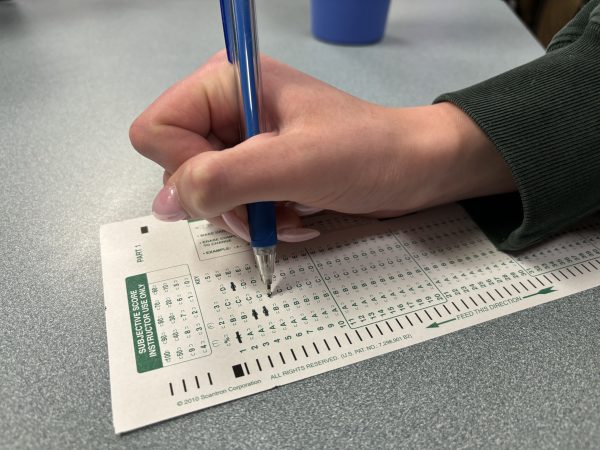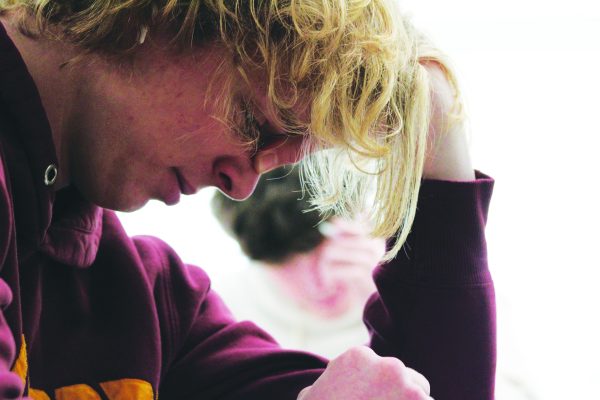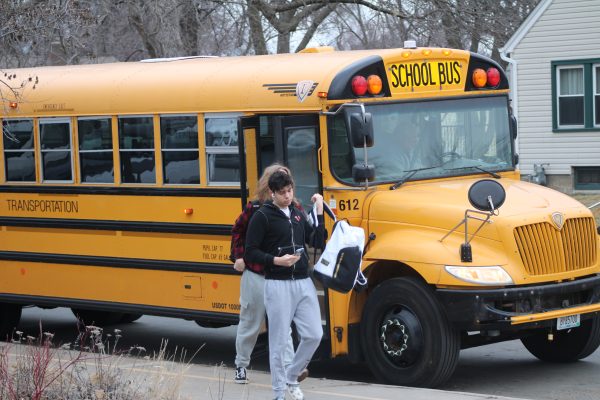Police department considers body cameras
Increased efforts to start trial in wake of Ferguson

April 14, 2015
Following the hotly debated officer-involved shooting Aug. 9 in Ferguson, Missouri, the St. Louis Park Police Department moves forward with a plan to implement officer body cameras.
Lieutenant Chad Kraayenbrink, a Park police officer involved in the process, said the next step facing the department is the choice of camera vendor. According to Kraayenbrink, the department has narrowed it down to two brands they are considering testing.
Kraayenbrink said while body cameras are not a new idea, the Ferguson shooting brought local and national law enforcement into perspective.
“Body cameras have been in the police world long before Ferguson,” Kraayenbrink said. “(But) I think the Ferguson issue was a tipping point that moved the national conversation further and may have expedited law enforcement to look into it.”
Sophomore Nils Rykken said he wants the police to wear body cameras in order to accurately depict a situation and be able to enforce justice.
“I think for sure in some cases (body cameras) are necessary to capture what actually happens and not just based on what people say. People will lie in order to get out of trouble,” Rykken said. “I’m definitely for it so long as the power isn’t abused in any way.”
Kraayenbrink also said there are possible complications because of the Freedom of Information Act, which could allow the public to request video collected by police.
Because of this law, Kraayenbrink said, someone could ask for six months worth of video and the department would have to provide it. While this is what the technology is for, he said, determining what parts of that data is public or private is where the trouble starts.
Kraayenbrink said the issue of privacy needs to be addressed by the state legislature, rather than the police department.
“The police won’t be able to make a determination on what’s private data and what’s public data without the guidance from our lawmakers,” Kraayenbrink said.
Other problems that would need to be resolved involve costs of staff, server space and other resources, according to Kraayenbrink.
Freshman Saadia Omar said she thinks body cameras would be useful only in specific situations and not always overall.
“(Body cameras) would be good in certain ways but I don’t think it’s necessary all the time. What difference would it make—it’s not like they are there for every murder,” Omar said. “It would be good to wear it when it’s dark out, or in bad neighborhoods where most of the trouble goes down.”
Despite the challenges, Kraayenbrink said the police department is in favor of implementing body cameras and their use in serving the community.
“Our belief here in St. Louis Park is that we are fully in support of (body cameras) if that’s what our community wants of their police department,” Kraayenbrink said. “We’re all for it.”













